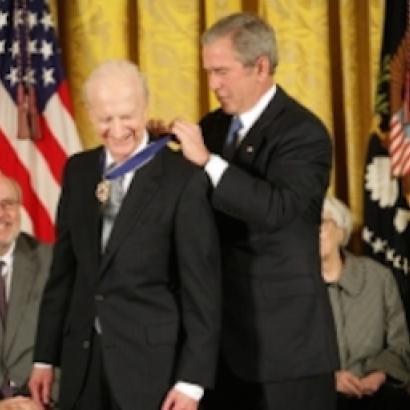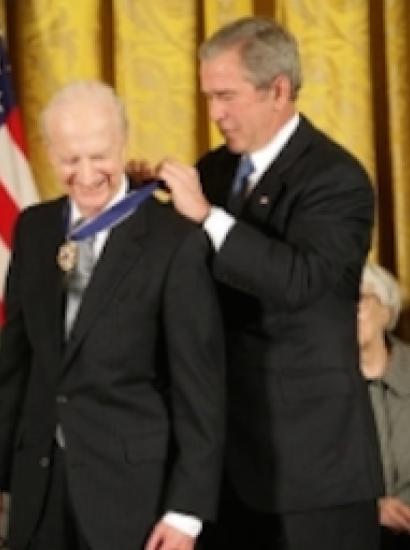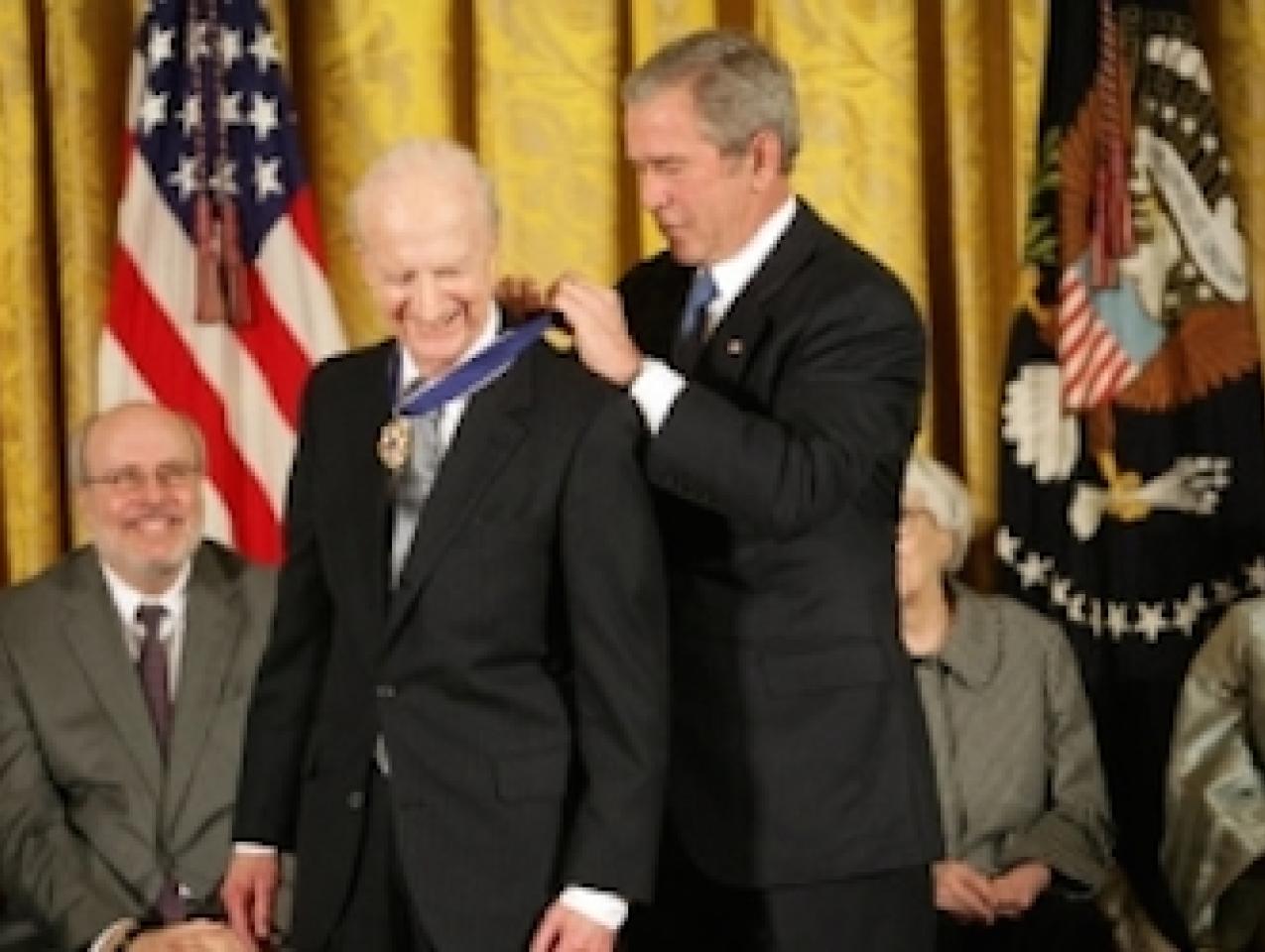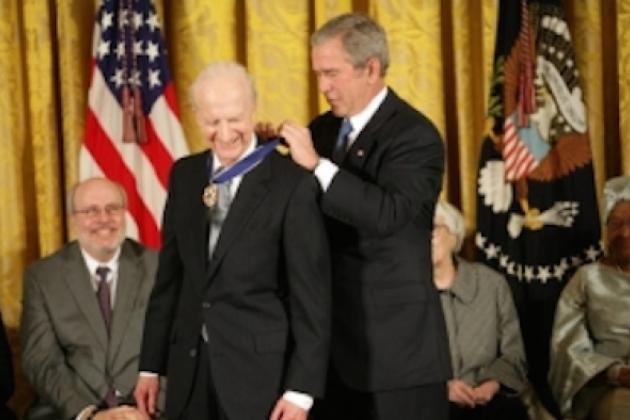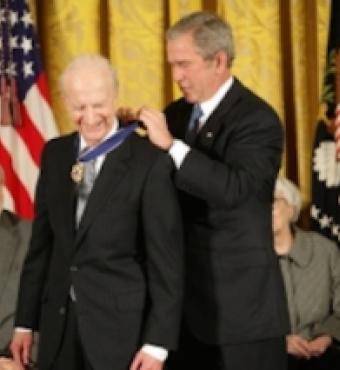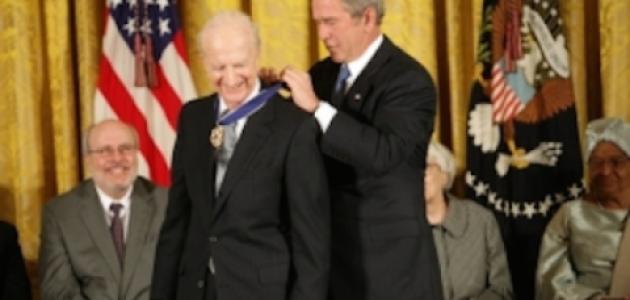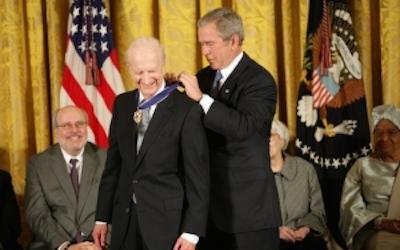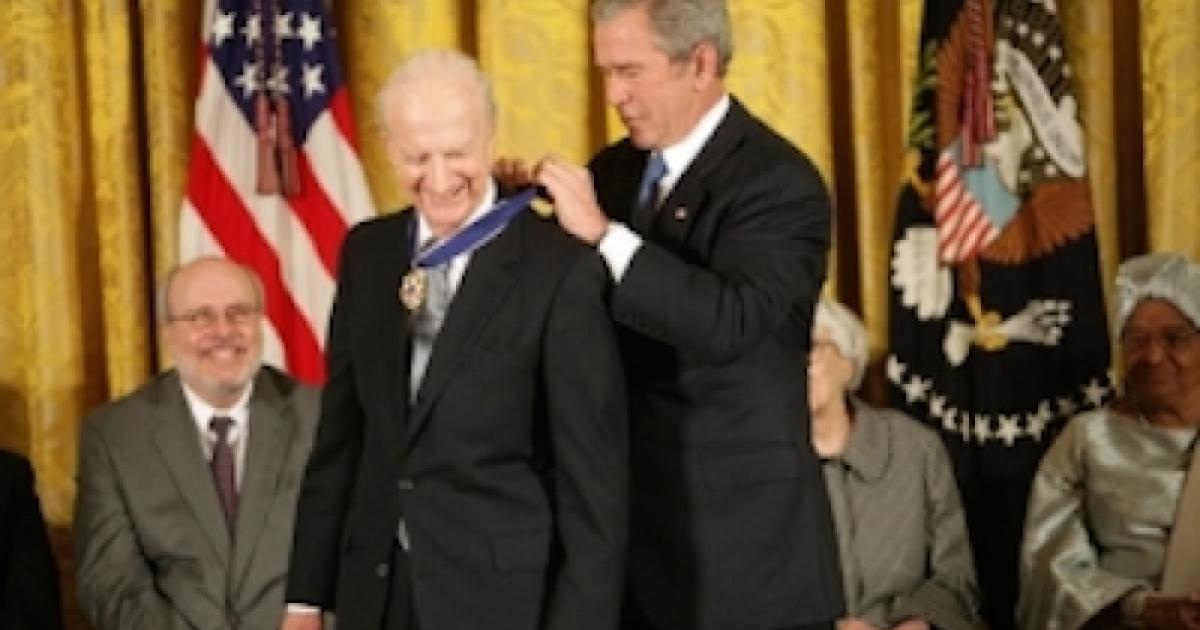- Economics
- History
On Saturday May 3, Gary S. Becker, a University of Chicago economics professor and a Hoover Institution Senior Fellow, died. He was 83. Becker was one of a kind. Beyond being a deeply kind man, he contributed mightily to economics, using economic analysis to understand human behavior in areas that, before him, were not being analyzed by economists. The Nobel committee put it well when it awarded him the 1992 Nobel Prize in economics; the prize was granted to Becker, said the committee, for “having extended the domain of economic theory to aspects of human behavior which had previously been dealt with—if at all—by other social science disciplines such as sociology, demography and criminology.”
Politically, Becker was a libertarian. He did not trust imperfect government officials to do things as well as imperfect markets did. But his distrust was based on careful study and analysis, not on faith. He published prolifically on public policy. For much of what he wrote, see his page at Hoover.
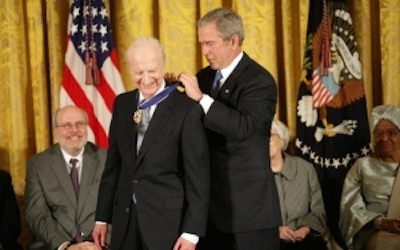
Gary Becker receives Presidential Medal of Freedom
Becker’s unusually wide applications of economics started early. In 1955 he wrote his doctoral dissertation at the University of Chicago on the economics of discrimination. Among other things, Becker successfully challenged the Marxist view that discrimination helps the person who discriminates. Becker pointed out that if an employer refuses to hire a productive worker simply because of skin color, that employer loses out on a valuable opportunity. In short, discrimination is costly to the person who discriminates.
That does not mean that there will be no discrimination. What it does mean is that those who discriminate are at a disadvantage and, therefore, free markets limit the amount of discrimination.
In fact, the week before Becker died I used Becker’s theory of discrimination to point out a fact that most commentators on the Donald Sterling case have missed. Sterling is the owner of the Los Angeles Clippers and was caught on tape making what were reasonably construed as racist comments about various black people. But I pointed out that you couldn’t tell that Sterling was a racist by looking at the color of most of the members of the Los Angeles Clippers or by the amount he paid them. I noted that the salaries of the top three players, all black, totaled over $46 million this season while the payroll for the whole 18-person roster was $73 million. However racist or foolish Sterling was, he was not so foolish as to think he could field a competitive team populated mainly by white people. In short, the market disciplined Sterling not to act on his racism. This was a beautiful illustration of Becker’s point.
Becker showed that discrimination will be less pervasive in more competitive industries because companies that discriminate will lose market share to companies that do not. He also presented evidence that discrimination is more pervasive in more-regulated, and therefore less-competitive, industries. The idea that discrimination is costly to the discriminator is common sense among economists today, and that is due to Becker.
In the early 1960s Becker moved on to the fledgling area of human capital. One of the founders of the concept—the other was his University of Chicago colleague Theodore Schultz—Becker pointed out what also seems like common sense but was new at the time: education is an investment. Education adds to our human capital just as other investments add to physical capital. Economists are still not sure in what way it is an investment. Does education raise people’s pay mainly by teaching them valuable skills that they use on their jobs? Or does it raise people’s pay mainly by signaling future employers that they can gut it out and get a degree? Becker believed the former.
One of Becker’s insights is that time is a major cost of investing in education. He used that insight to explain why a substantial increase in college tuitions had not led to a substantial decline in college attendance by white people. In his article “Human Capital” in The Concise Encyclopedia of Economics, Becker wrote:
The benefits of a college education, as noted, increased in the 1980s and 1990s. Tuition and fees did rise by about 39 percent from 1980 to 1986, and by 20 percent more from 1989 to 2000 in real, inflation-adjusted terms (again, using the faulty price indexes available). But tuition and fees are not, for most college students, the major cost of going to college. On average, three-fourths of the private cost of a college education—the cost borne by the student and the student’s family—is the income that college students give up by not working. A good measure of this “opportunity cost” is the income that a newly minted high school graduate could earn by working full time. During the 1980s and 1990s, this forgone income rose only about 4 percent in real terms. Therefore, even a 67 percent increase in real tuition costs in twenty years translated into an increase of just 20 percent in the average student’s total cost of a college education.
Becker also applied the concept of opportunity cost to the economics of the family. He showed that as market wages rose, the cost to married women of staying home would rise. They would want to work outside the home and economize on household tasks by buying more appliances and fast food.
Not even crime escaped Becker’s keen analytical mind. It started with his worrying about getting a parking ticket. In his 1992 Nobel lecture, Becker told the story:
I began to think about crime in the 1960s after driving to Columbia University for an oral examination of a student in economic theory. I was late and had to decide quickly whether to put the car in a parking lot or risk getting a ticket for parking illegally on the street. I calculated the likelihood of getting a ticket, the size of the penalty, and the cost of putting the car in a lot. I decided it paid to take the risk and park on the street. (I did not get a ticket.)
As I walked the few blocks to the examination room, it occurred to me that the city authorities had probably gone through a similar analysis. The frequency of their inspection of parked vehicles and the size of the penalty imposed on violators should depend on their estimates of the type of calculations potential violators like me would make. Of course, the first question I put to the hapless student was to work out the optimal behavior of both the offenders and the police, something I had not yet done.
Becker’s thinking about this led to his trail-blazing article in the late 1960s whose working assumption is that the decision to commit crime is a function of the costs and benefits of crime. From this assumption he concluded that the way to reduce crime is to raise the probability of punishment or to make the punishment more severe. His insights into crime, like his insights on discrimination and human capital, helped spawn a new branch of economics.
In the 1970s Becker extended his insights on allocation of time within a family, using the economic approach to explain the decisions to have children and to educate them, and the decisions to marry and to divorce. It would be an overstatement, though, to say that his model explained such decisions. In his empirical work, he found that his model explained only about five percent of the variation in divorce rates.
As noted earlier, Becker was a libertarian. Like his senior colleague and mentor, the late Milton Friedman, Becker had a column in a weekly magazine—Friedman’s was in Newsweek and Becker’s in Business Week. Also like Friedman, Becker used this column to do good economic analysis and to advocate free-market solutions to current problems.
One major problem that Becker addressed in his column was the drug war. He did not shrink from advocating a free market in illegal drugs, a good that he, I’m confident, did not buy. He saw the drug war as a tremendous waste. Indeed, his second to last entry on the Becker-Posner Blog, which he shared with federal judge and legal scholar Richard Posner, was titled “Why Marijuana Should be Decriminalized.” In The Economics of Life, a collection of his Business Week columns that he published with his wife, historian Guity Nashat Becker, Becker lays out his views on the drug war and other issues. I highlighted his views on the drug war when I reviewed the book for the Wall Street Journal. The book review editor actually added a sentence to my review claiming that Becker was naïve in his advocacy. Of course, I fought hard to keep that sentence out—and I succeeded.
Becker also applied his understanding of government’s imperfections to foreign policy. In a 2010 interview with the New Yorker’s John Cassidy, Becker said:
So I supported, say, the invasion of Iraq. In retrospect, I think that was a mistake, not only because things didn’t go that well, but because I didn’t really take into account enough that governments don’t manage things very well.
Many people, including Becker’s mentor Milton Friedman, spoke over the years about how brilliant Becker was. The story that best illustrates his brilliance is from my friend, Harry Watson, who was a junior colleague of Becker’s at the University of Chicago in the late 1970s and early 1980s. In a note to me earlier this week, Watson wrote the following:
Gary was a prince and had an IQ off the charts even for Chicago. His work was not particularly mathematical but he had the ability to understand complex mathematical papers and do sensitivity analysis in his head. I remember a workshop with [MIT economists and later Nobel Prize winner] Peter Diamond (I think) that had a big audience of all the key faculty. Diamond filled the blackboards with a model using an esoteric branch of mathematics to show some sort of market failure. It was an arid exercise and he appeared to think that it would be over everyone’s head. In his matter-of-fact way, Gary spoke up at the end and described how the result would change with different specifications of the initial conditions, even though this was a branch of mathematics that he probably had never seen before. Becker showed that the market failure case was a special one and that most specifications yielded an efficient outcome. Everyone was dumbfounded. Even George Stigler was speechless.
What more is there to say? Gary Becker was brilliant—and a prince. I will miss him.








